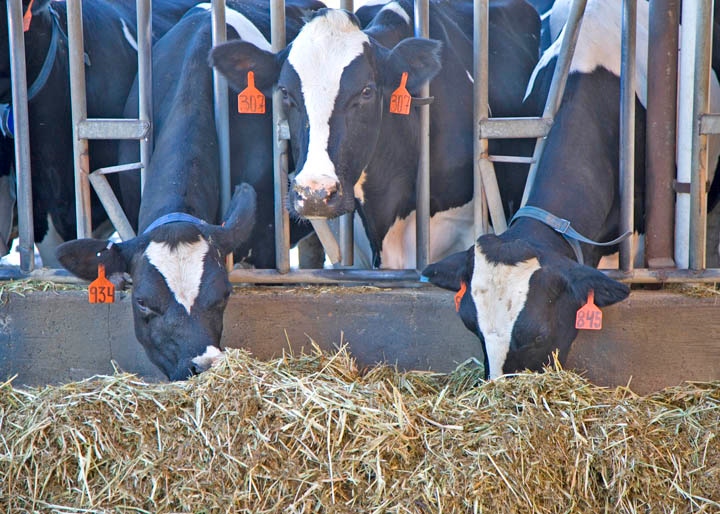June 20, 2012

A natural remedy that delays and reduces the severity of mastitis infection in dairy cattle is being investigated by scientists at the USDA.
Mastitis, a common and costly disease, affects the mammary gland or udder of dairy cattle, resulting in a decrease in milk production and quality. In some cases, infected cows have to be removed from the herd. Economic losses are estimated at $2 billion a year.
Scientists at the Agricultural Research Service (ARS) National Animal Disease Center (NADC) in Ames, Iowa, have discovered that vitamin D may offer an alternative treatment for mastitis instead of antibiotics.
ARS is USDA's chief intramural scientific research agency, and this research supports the USDA priority of promoting international food security.
Molecular biologist John Lippolis, in the Ruminant Diseases and Immunology Research Unit at NADC, looked at the role of a natural form of vitamin D—prehormone 25-hydroxyvitamin D—in altering the response of the cow's immune system to a mastitis pathogen, Streptococcus uberis.
Research indicates that precise levels of vitamin D need to be in the bloodstream to prevent conditions such as rickets, or softening of the bones. Higher levels are required for proper immune function. Prehormone 25-hydroxyvitamin D is found in the blood, but very little is found in milk.
In the study, cows were given vitamin D by infusion directly into the infected quarter of the mammary gland. Scientists then evaluated data on feed intake, bacteria counts in milk, milk production, serum levels, and body temperature for all animals.
They found a significant reduction in bacterial counts and fewer clinical signs of severe infection in cows treated with vitamin D, compared to cows that received no treatment. In the early stage of the infection, as vitamin D reduced the bacterial counts, milk production was also greater in the treated animals.
These results suggest that vitamin D might help reduce antibiotic use in treating mastitis, according to Lippolis. In addition, vitamin D has the potential to decrease other bacterial and viral diseases, such as respiratory tract infections.
Read more about this research in the May/June 2012 issue of Agricultural Research magazine.
You May Also Like




